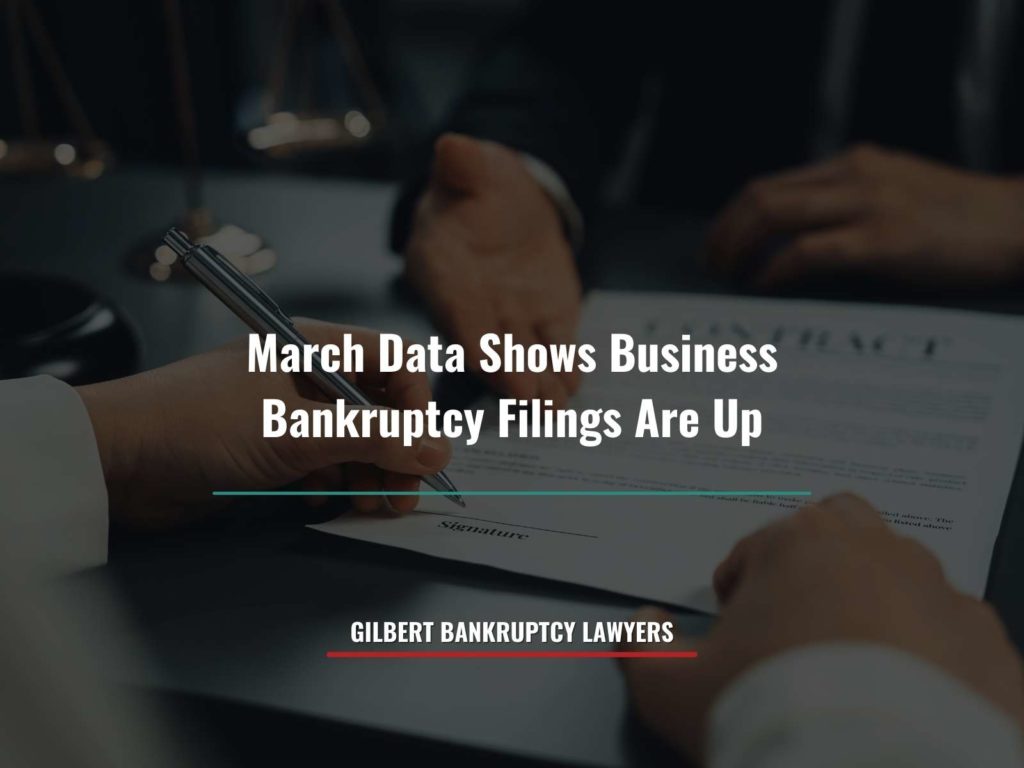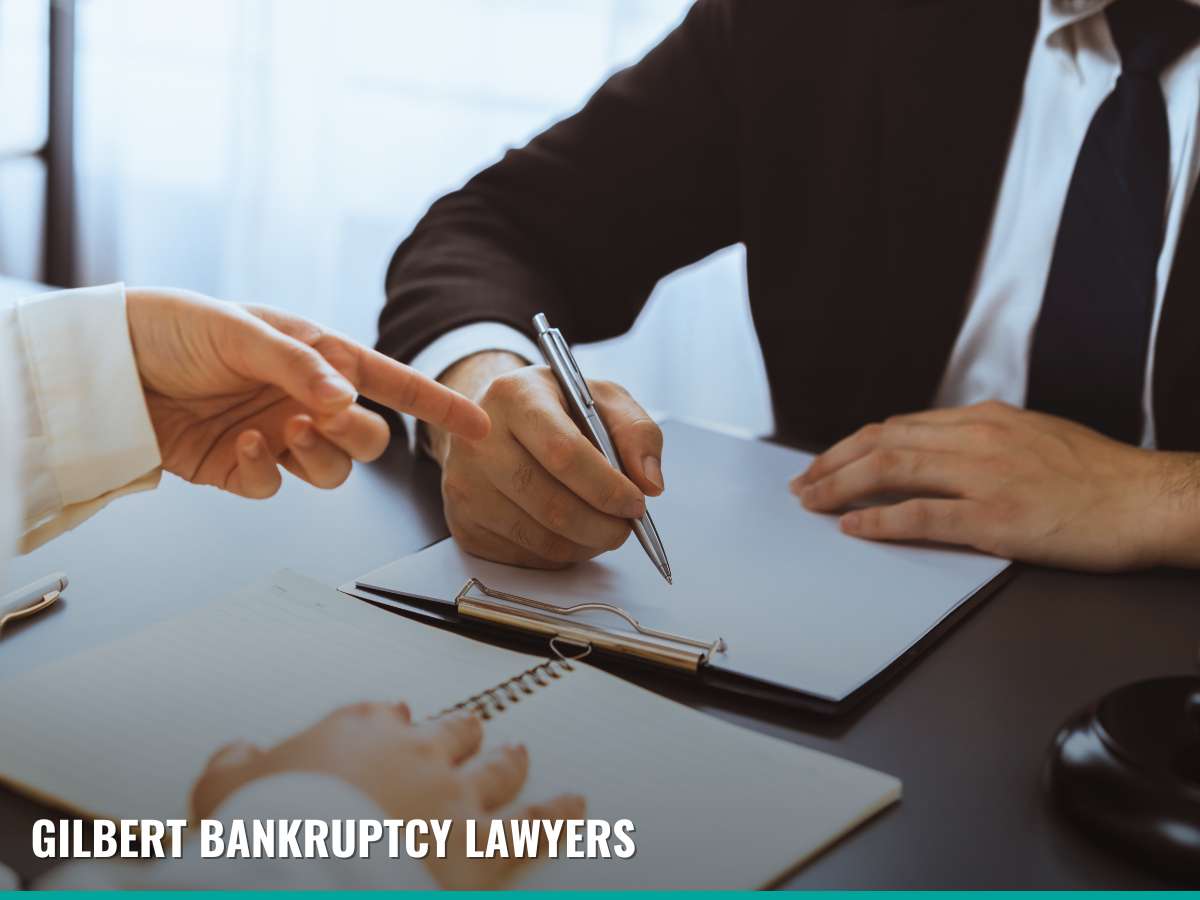It’s hard to go anywhere or do anything without being reminded about inflation and the rising cost of living. Rent is up, groceries are expensive, and it’s becoming more difficult to justify discretionary purchases like meals at restaurants or days out with the family. Consumers aren’t the only one feeling the pressure of inflation- businesses are struggling with debts and operating costs, leading some of them to turn to bankruptcy. When a business declares bankruptcy, it doesn’t necessarily mean that the business is closing. However, bankruptcy can also help expedite the process of shutting down and keep matters fair for all parties involved. Consumers can also use bankruptcy to clear debts and keep creditors at bay. If you are considering filing for bankruptcy in the Tucson or Phoenix area, you probably have a lot of questions. Get them answered by a skilled Arizona bankruptcy professional, free of charge- contact our firm at 480-448-9800 to set up your free consultation.
What Caused the Increase in Corporate Bankruptcy Filings?
There was a total of 59 corporate bankruptcy filings in the United States in March 2024. This is an increase from the 48 total corporate bankruptcy cases filed in February 2024. These levels are lower than the same months in 2023, but higher than they were 10 years ago. The top categories for consumer bankruptcy filings are the consumer discretionary sector and healthcare. The consumer discretionary sector includes non-necessity items like shoes and apparel.
Joann Fabrics filed for bankruptcy despite having more than 800 locations, and Macy’s announced its intentions to close hundreds of store locations, although it did not declare bankruptcy. These retailers blame consumer caution and high operating costs as the reasons behind their bankruptcy filings. When the cost of living is high for consumers, they have less money to spend on things like footwear and fashion. And the high cost of living translates into high operating costs for businesses. As of April 2024, a footwear company called Shoes for Crews also declared bankruptcy in an attempt to sell the business. It plans to find a new owner and continue operating, which can be accomplished through a chapter 11 bankruptcy filing. When a company files for chapter 7 bankruptcy, it means the end of the company- it must shut down.
What Happens In a Business Chapter 11
Chapter 11 bankruptcy is available to consumers and businesses, but you will most often hear of it being filed by larger businesses. There are small business and subchapter V procedures available that speed up the process by eliminating the creditor committee requirement in a chapter 11 bankruptcy, but the business must meet certain limitations to qualify for this type of filing. If the company is too large to qualify for a small business filing, their primary creditors will join together as a committee. While the company retains control of its day-to-day operations, business ventures that are outside of the normal course of business will need to be approved by the committee. For example, if the company wants to shut down several of its locations to reduce operating costs, this still needs to be voted on for approval by the creditor committee. But if a manager wants to let an employee go for consistent tardiness, this type of matter doesn’t need to be escalated to the creditor committee.
There isn’t a set course for a chapter 11 bankruptcy. There are several ways a company can “emerge” from chapter 11 bankruptcy. Oftentimes, it means finding a new investor for the company or a buyer for the company altogether. Some businesses use chapter 11 to shut down although it is not a requirement for chapter 11 bankruptcy. A business could also use the protection period from the automatic stay to restrategize the business, such as moving away from brick-and-mortar locations and focusing on online sales. Once the committee approves of the plan, the business can implement it. When the case emerges from bankruptcy and is considered discharged will vary by case.
What Happens in a Business Chapter 7
Chapter 7 bankruptcy is a less variable process than chapter 11 bankruptcy. Business debtors don’t have multiple options in how to complete a chapter 7 bankruptcy filing. The only option is to close down the business. A chapter 7 case is generally always completed in a 3- to 6-month timeframe. So if you hear of a business that you like filing for chapter 7 bankruptcy, head to their closing sale quickly because the business will not be around for much longer.
Personal Bankruptcy- Chapter 7 & Chapter 13
Unless you’re the head of a multimillion-dollar corporation, chapter 11 bankruptcy is probably not the solution to your debt issues. Chapter 7 is the most common form of consumer bankruptcy, but chapter 13 bankruptcy can be useful to those struggling with debt as well. If you are considering bankruptcy, chapter 7 or chapter 13 may be the right form of debt relief for you. If you need assistance determining your bankruptcy eligibility in the state of Arizona, call 480-448-9800 to schedule your free consultation with our firm.
Although chapter 7 is the most popular type of bankruptcy, not everyone qualifies. Debtors must meet income restrictions to file for chapter 7 bankruptcy, and some of their assets might not be protected in chapter 7. There are bankruptcy exemptions that the debtor can apply to protect their assets, but the exemptions have relatively low values. Unprotected assets can be taken away by the bankruptcy trustee, who will sell them at auction and use the proceeds to pay debts from the bankruptcy estate. If the debtor passes these hurdles and qualifies for chapter 7, they can wipe away all of their unsecured nonpriority debts in a relatively simple process.
Chapter 13 bankruptcy allows a debtor to address debts, like secured debts and priority debts, which are not affected by a chapter 7 filing. A debtor who files chapter 13 will pay off their debts in a payment plan that lasts for 3 or 5 years. Their disposable monthly income will be calculated to determine how much they can afford to pay into the plan. If the debtor doesn’t have enough disposable monthly income, their unsecured non-priority debts (the debts that could be discharged in chapter 7 will be discharged at the end of the payment plan. A debtor needs to be able to show that they have sufficient income to file for chapter 13 bankruptcy.
Does Inflation Have You Considering Bankruptcy? Start With A Free Consultation.
High prices on just about everything aren’t just affecting businesses, but individual consumers as well. There is only so far you can stretch your budget before creditors take action for unpaid bills. If you are facing a lawsuit from your creditor, vehicle repossession, home foreclosure, wage garnishment, and more, bankruptcy can shield you from creditors and clear your debts. After bankruptcy discharge, debtors have a clean slate and can create a new credit history without the burden of old debts. Our Gilbert bankruptcy team strives to make the process seamless and reduce stress for our clients. We offer payment plan options that allow eligible clients to file for Zero Dollars Down. To learn more, call 480-448-9800 to schedule your free consultation and contact us.
Gilbert Bankruptcy Lawyers
Office: 480-448-9800
Email: info@myazlawyers.com
Website: https://gilbertbankruptcylawyers.com
Additional Information at:
Phoenix Bankruptcy Lawyer
Mesa Bankruptcy Lawyers
Phoenix DUI Lawyer
Chandler Bankruptcy Lawyer
Tempe Bankruptcy Lawyers
Vegas Zero Down Bankruptcy Attorney
Gilbert Bankruptcy Lawyers
Tucson Bankruptcy Lawyer
Arizona Zero Down DUI
Las Vegas Bankruptcy Lawyers
AZ Bankruptcy Lawyer

